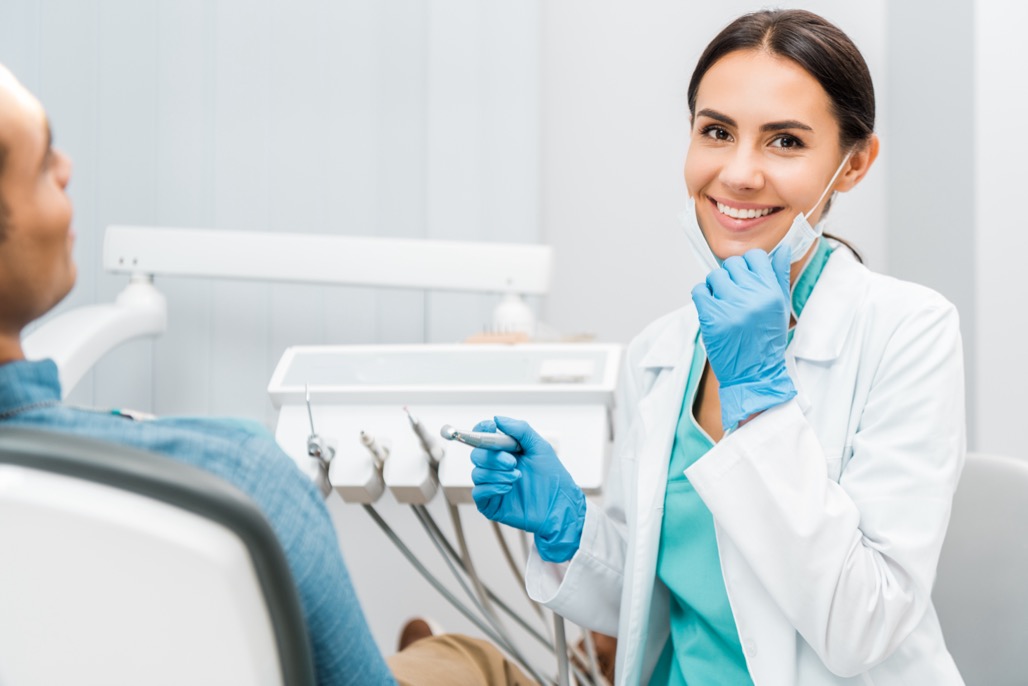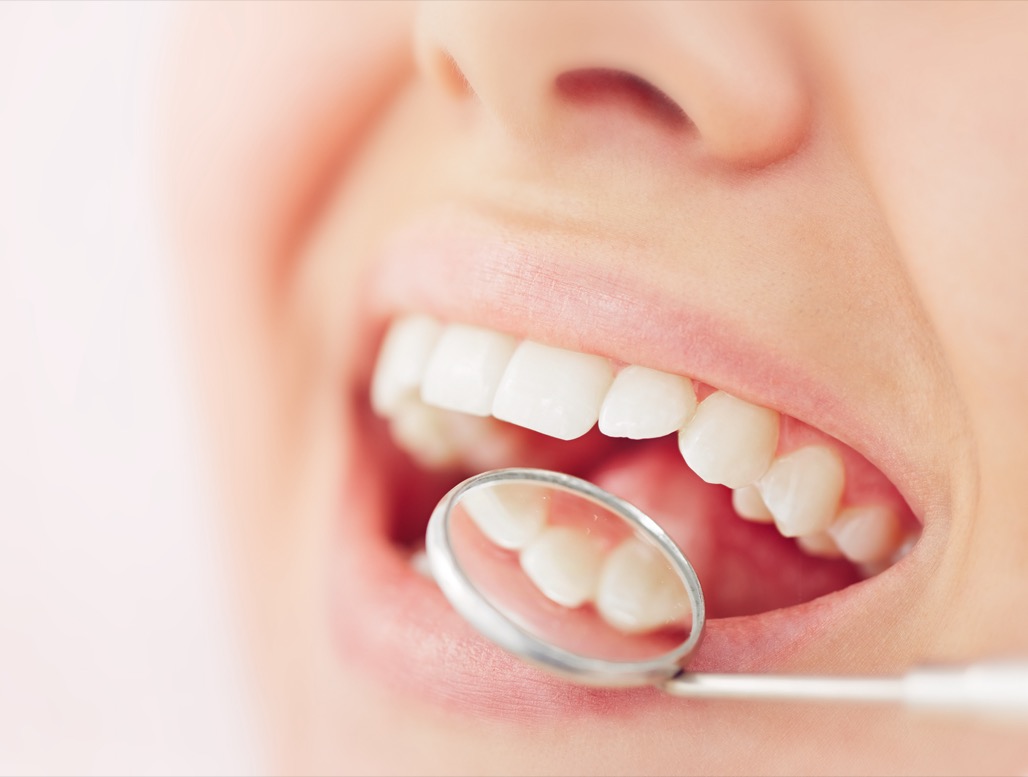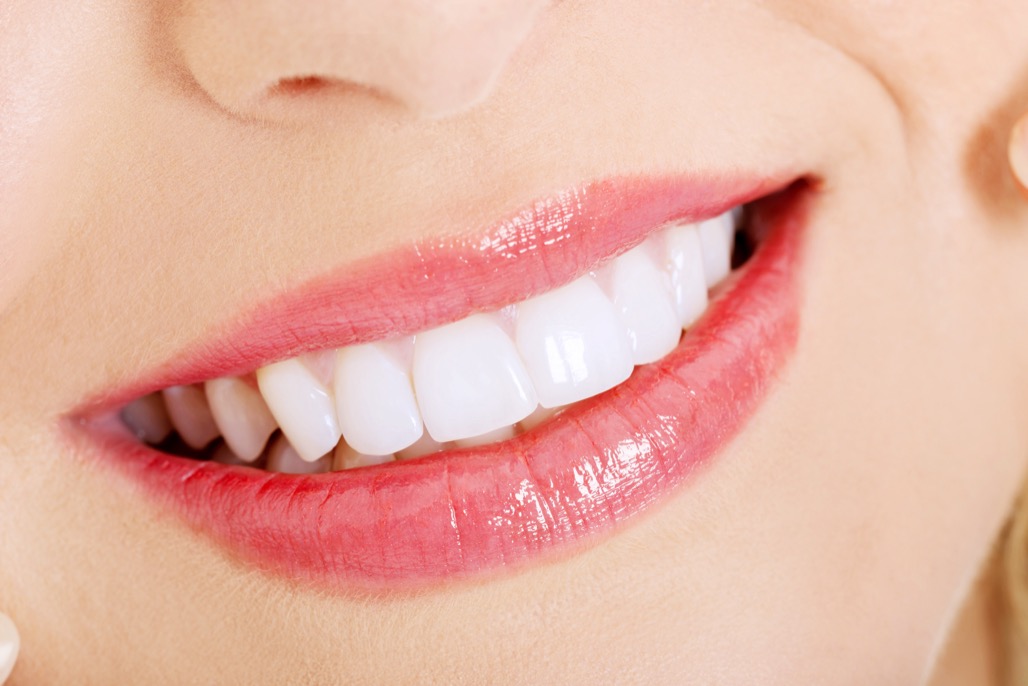Author: admin
Top Rated Dentist Near Me in Litchfield
Achieving and maintaining excellent oral health is a crucial
component of overall well-being, and accessing top-rated dental care is
fundamental to this process. A practice that earns the distinction of
being top-rated not only excels in a wide range of dental services but
also prioritizes creating a positive, comfortable experience for every
patient. These practices are renowned for their dedication to
incorporating the latest in dental technology and techniques, ensuring
that each patient receives the highest standard of care.
Comprehensive dental
treatments offered
Top-rated dental practices are distinguished by their ability to
provide an array of treatments that cater to the diverse needs of their
patients:
- Advanced periodontal therapy: Effective
treatments for gum disease that restore oral health while prioritizing
patient comfort. - Cosmetic dentistry: Including professional
treatments to enhance the aesthetics of your smile. - Restorative procedures: High-quality crowns,
bridges, and implants designed to replace or repair damaged
teeth. - Orthodontics: Modern solutions for straightening
teeth and correcting bite issues, tailored to the lifestyle and needs of
each patient. - Preventive care: Regular check-ups, cleanings,
and oral cancer screenings to maintain dental health and prevent
disease.
A focus on the patient
experience
What sets top-rated dental practices apart is not solely their
clinical expertise but their unwavering commitment to patient
satisfaction:
- Personalized treatment planning: Each patient’s
treatment plan is customized based on detailed diagnostics and personal
goals, ensuring outcomes that exceed expectations. - State-of-the-art comfort measures: Utilizing the
latest pain management technologies and sedation options to guarantee a
comfortable, anxiety-free experience. - Educational approach: Empowering patients with
knowledge about their oral health and treatment options, fostering
informed decisions and active participation in their care
journey.
Finding excellence in dental
care
For individuals seeking unparalleled dental care, the choice of a
dental provider is critical. Top-rated practices offer not just
exceptional treatment outcomes but also a patient-centered approach that
transforms the dental care experience.
Discover exceptional dental
care
Embark on your journey to optimal oral health with a dental practice
that stands out for its excellence in both care and patient experience.
We are recognized as a leading provider of top-rated dental care, where
our commitment to cutting-edge treatment, patient comfort, and
satisfaction defines our practice. Whether you’re seeking preventive
care, cosmetic enhancements, or restorative treatments, our team is
ready to deliver the exceptional care you deserve.
Connect with us to experience the difference that top-rated dental
care can make in your life. Your health, comfort, and smile are our
highest priorities.
Routine Dental Care Treatments Near Me in Litchfield
Common reasons
for seeking routine dental care
Embracing regular dental visits is key to preventing a myriad of oral
health issues. Here’s why many consider routine dental care
indispensable:
-
Disease Prevention: Regular check-ups can
prevent diseases before they start or catch them early when they’re
easier to treat. -
Oral Health Maintenance: Cleanings, exams, and
X-rays play a crucial role in maintaining your overall oral
health. -
Early Detection: Routine visits allow for the
early detection of problems like cavities, gum disease, and even oral
cancer. -
Education and Advice: Dental professionals
provide valuable advice on personal oral hygiene, helping you to keep
your mouth healthy between visits.
These components of routine care are fundamental to maintaining not
just oral health but also contributing to your overall well-being.
Expert care for every
individual
Routine dental care is about providing personalized treatments that
ensure the well-being of your teeth and gums. Here’s how expert dental
care makes a difference:
-
Tailored Treatments: Every individual has unique
dental needs, and routine care is customized to address these specific
requirements. -
Preventive Measures: Beyond treating existing
conditions, the focus is on preventing future issues through education,
cleanings, and preventive treatments. -
Comprehensive Care: From basic cleanings to more
detailed examinations and treatments, routine dental care covers all
bases to keep your oral health in check.
Begin your journey to
optimal oral health
Understanding the importance of routine dental care is the first step
toward achieving and maintaining a healthy, confident smile. For those
searching for “Routine Dental Care Treatments Near Me” we stand ready to
provide expert dental services tailored to meet your individual needs
and those of your family.
If you’re looking for comprehensive dental care that prioritizes your
health and comfort, reach out to us. Let our team guide you through your
dental care journey, ensuring you receive the personalized and
preventive care necessary for a lifetime of healthy smiles.
Top Rated Dental Care in Litchfield
The quest for top-rated dental care is a search for a practice known
for exemplary service, superior treatments, and patient-centered
approach. A top-rated practice stands out not only for the quality of
its dental work but also for its commitment to ensuring every patient’s
experience is positive, comfortable, and tailored to meet individual
needs. This is a perfect fit for patients driven by the desire for a
radiant smile, relief from discomfort, and the confidence that comes
with receiving top-notch care.
Excellence in dental
services
The hallmark of top-rated dental care lies in the breadth and quality
of services offered, ensuring every aspect of oral health is
comprehensively covered:
-
Modern Technology: Utilizing the latest
technology for accurate diagnosis, ensuring that every treatment plan is
precisely tailored to the patient’s needs. -
Advanced Treatment Options: From routine
cleanings to complex restorative procedures, these practices offer a
full spectrum of dental services, employing the latest techniques and
materials. -
Preventive Care and Education: Emphasizing the
importance of preventive care, top-rated practices provide patients with
the knowledge and tools needed to maintain optimal oral health outside
the dental office. -
Cosmetic Dentistry: Enhancing smiles with a
range of cosmetic services tailored to achieve each patient’s aesthetic
goals.
The patient
experience at top-rated practices
What truly sets top-rated dental practices apart is their unwavering
commitment to patient satisfaction and comfort:
-
Personalized Care: Each treatment plan is
customized to address the unique concerns and desires of the patient,
ensuring outcomes that meet or exceed expectations. -
Comfort and Convenience: With patient comfort as
a priority, these practices offer a relaxing environment and convenient
scheduling options to make dental care as stress-free as
possible. -
Compassionate Staff: From the front desk to the
dental chair, every staff member is dedicated to providing a warm,
welcoming experience, ensuring that patients feel valued and at
ease.
Seeking top-rated
dental care in your Litchfield
Finding a dental practice that embodies these qualities means
embarking on a journey toward not just improved oral health, but an
enhanced quality of life. The confidence that comes from a healthy,
beautiful smile and the peace of mind in knowing you’re in expert hands
is invaluable.
For those in search of top-rated dental care, we are ready to welcome
you. Our practice is built on a foundation of excellence, from the
advanced treatments we offer to the personalized, compassionate care we
provide every patient. We’re here to ensure your dental care experience
is unmatched in quality and comfort.
If you’re seeking exceptional dental care that meets the highest
standards of excellence, we invite you to contact us. Let us be your
partner in achieving the radiant, healthy smile you deserve.
Dental Crowns or Fillings to Resolve Symptoms Near Me in Litchfield
Dental Crowns or Fillings to Resolve Symptoms Near Me
Achieving optimal oral health extends beyond just maintaining a
routine of brushing and flossing; it often requires professional
intervention to address issues that could compromise your overall
well-being. These essential treatments not only restore damaged or
decayed teeth but also play a significant role in enhancing your oral
health. These procedures can help prevent further dental issues,
contributing to a healthier mouth and, by extension, a healthier
you.
Enhancing oral
health with cavity fillings
The process of receiving a cavity filling is instrumental in stopping
the decay process, protecting the tooth from further damage:
-
Stopping Decay: By removing the decayed portion
of the tooth and filling it with a durable material, dentists halt the
spread of decay, preventing it from reaching the tooth’s more sensitive
parts. -
Restoring Tooth Function: Fillings restore the
shape and function of the tooth, allowing for proper chewing and biting
without discomfort. -
Preventing Future Issues: Properly filled
cavities reduce the risk of further decay and the need for more complex
procedures like root canals or extractions.
Promoting overall
wellness with dental crowns
Dental crowns offer a comprehensive solution for restoring severely
damaged teeth, significantly impacting your oral health:
-
Protecting Vulnerable Teeth: Crowns cover and
strengthen teeth that are fractured, have large fillings, or have
undergone root canal therapy, safeguarding them against future
damage. -
Maintaining Alignment: By restoring a damaged
tooth to its original size, crowns help keep the surrounding teeth in
proper alignment, preventing issues like bite misalignment and jaw
pain. -
Enhancing Cleanliness: A crown’s smooth, durable
surface can be easier to clean than a cracked or extensively filled
tooth, reducing the risk of gum disease and further decay.
Investing in a healthier
future
Opting for dental crowns or cavity fillings at a practice known for
its commitment to patient health can significantly impact your oral and
overall well-being. These treatments address immediate dental concerns
and lay the groundwork for a future free from oral pain and complex
dental issues.
Take the first step
towards a healthier you
If you’re looking to improve your oral health through dental crowns
or cavity fillings, we are ready to provide the expert care necessary to
achieve a healthier mouth. Our focus on comprehensive treatment and
preventative care ensures that each patient receives personalized
attention aimed at fostering long-term oral health.
Contact our office today to learn more about how our treatments can
contribute to your oral health and overall wellness. Let us help you
take the first step towards a healthier, more vibrant smile with the
peace of mind that comes from knowing your dental care is in expert
hands.
Routine Dental Exams in Litchfield
The foundation of a healthy lifestyle extends beyond regular exercise
and a balanced diet; it also includes taking care of your oral health.
Routine dental care treatments are integral to this, offering a
proactive approach to preventing dental issues and enhancing your
overall well-being. Accessing diverse treatments aimed at improving
dental health is straightforward, with a variety of services designed to
meet the unique needs of each individual, ensuring your dental health
contributes positively to your life quality.
Enhancing
dental health through routine treatments
The spectrum of routine dental care is vast, with each treatment
playing a vital role in maintaining and improving oral health. Here’s a
look at how various treatments can benefit your dental health:
-
Oral Screenings: Early detection of underlying
conditions is crucial for effective treatment. -
Digital X-rays: Offer a detailed view of dental
structures, identifying issues that aren’t visible during a standard
examination. -
Routine Check-ups and Exams: Early detection of
oral health issues that could indicate systemic health
problems. -
Professional Cleanings: Removal of plaque and
tartar to prevent gum disease, which has been linked to heart disease
and stroke. -
Polishing Teeth: Removes stains, contributing to
a healthier appearance and boosting self-esteem. -
Dental Crowns and Fillings: Essential for
restoring damaged or decayed teeth, these treatments not only improve
oral health but also enhance the tooth’s appearance, supporting a
healthy, confident smile.
These treatments, among others, are fundamental components of routine
dental care, each contributing to a healthier mouth and, by extension, a
healthier you.
Personalized care for
improved well-being
Routine dental care is not a one-size-fits-all solution. It is deeply
personalized, taking into account individual health needs, lifestyle
factors, and specific dental goals. This personalization ensures
that:
-
Each Treatment is Tailored: Dental care plans
are customized to address the unique concerns and needs of the
individual, enhancing the effectiveness of each treatment. -
Comprehensive Support: Beyond treatments,
routine dental care provides the knowledge and resources necessary for
individuals to maintain their oral health outside the dentist’s
office. -
Focus on Prevention: By emphasizing preventive
care, routine dentistry helps to avoid dental issues before they start,
leading to improved long-term health outcomes.
Partner
with us for superior dental health through routine care
We believe in the power of routine dental care to not only improve
your oral health but also enhance your overall quality of life. Our
dedicated team is ready to provide you with a comprehensive range of
treatments tailored to meet your unique needs and goals.
Seeking out routine dental care? Contact us today. Let us be your
partner in navigating the path to optimal dental health. Our commitment
to personalized care and preventive strategies ensures that we’re not
just treating issues as they arise but helping you prevent them,
ensuring a lifetime of healthy smiles.
Family Dentistry Services in Litchfield
A radiant smile and unwavering confidence are invaluable assets in
every stage of life, and family dentistry plays a crucial role in
achieving both. By catering to the dental needs of all family members, a
family dentist not only ensures healthy teeth and gums but also boosts
self-esteem and confidence through beautiful smiles. Family dentistry
provides the transformative power of comprehensive dental care on your
smile and overall confidence.
Confidence in your family
smiles
-
Selection: Choosing a family dentist who values
aesthetics as much as health can transform your family’s smiles. A
dentist’s ability to address both cosmetic and health concerns means
every family member can look forward to a brighter, more confident
smile. -
Consultation: Discuss cosmetic goals during your
initial visit to align your dental health plan with your aesthetic
aspirations. A thorough consultation allows the dentist to understand
your expectations, ensuring outcomes that boost confidence along with
oral health. -
Planning: Incorporate cosmetic procedures into
your family’s dental care plan as needed. Whether it’s teeth whitening,
orthodontics, or veneers, planning for these enhancements can
significantly impact your family’s confidence and satisfaction with
their smiles. -
Treatments: Comprehensive dental care involves
various key treatments, including oral screenings, digital X-rays,
routine exams, professional cleanings, teeth polishing, and restorative
services such as dental crowns and fillings. Together, these elements
play a critical role in maintaining oral health, safeguarding against
future problems, and preserving the beauty of your smile.
Transformation of your
family’s smiles
-
Personalization: Tailor treatments to individual
needs, focusing on both improving dental health and enhancing smile
aesthetics. Personalized care plans ensure that each family member’s
unique cosmetic and health requirements are met, leading to more
satisfying results. -
Cleanings: Professional dental cleanings involve
the removal of plaque and tartar from teeth surfaces and below the
gumline. This process not only brightens your smile but also prevents
the buildup of harmful bacteria that can lead to gum disease and tooth
decay. Regular cleanings are essential for maintaining oral hygiene and
freshening your breath. -
Health: Oral health is intrinsically linked to
overall well-being. Healthy teeth and gums contribute to better
nutrition, comfort, and self-esteem, while reducing the risk of
secondary health issues such as heart disease, diabetes, and stroke. A
routine of good oral hygiene practices and regular dental check-ups
supports your body’s overall health. -
Avoiding Decay: Preventing tooth decay involves
a combination of at-home care and professional dental treatments.
Adopting a diet low in sugar, regular brushing with fluoride toothpaste,
and flossing daily are key strategies in keeping decay at bay.
Post-care and ongoing
dental health
-
Maintenance: Follow a detailed maintenance plan
to prolong the effects of cosmetic treatments and ensure lasting dental
health. Proper care and regular check-ups maintain the integrity of
dental work and the vibrancy of your smile. -
Education: Learn about at-home care techniques
that support both dental health and aesthetic beauty. Understanding how
to care for your teeth post-treatment can make a significant difference
in maintaining the results long-term. -
Support: Leverage the support of your family
dentistry team to address any concerns or needs that arise
post-treatment. A supportive dental team is key to ensuring comfort,
satisfaction, and the longevity of your dental health and
aesthetics.
Your family’s confidence
By focusing on your smile we are committed to enhancing not just your
health but also your family’s confidence. We believe in the power of a
confident smile and are here to offer the treatments and support
necessary to achieve it.
If you’re looking to improve both the health and appearance of your
family’s smiles, contact us today. Let us help you and your loved ones
smile brighter and with more confidence than ever before.
Family Dental Services Near Me in Litchfield
Understanding the symptoms that may signal dental health issues and
knowing the treatments available to address them are critical components
of family dentistry. However, navigating through this information can
often be overwhelming for both adults and children. This approach
ensures that families are well-informed and at ease, enhancing the
overall dental care experience.
Identifying
symptoms and available treatments
When it comes to dental health, being able to recognize early
symptoms and understand the corresponding treatments is invaluable.
Family dentistry addresses a variety of concerns, making dental care
accessible for all ages:
-
Cavities and Tooth Decay: Early signs include
tooth sensitivity and pain. Treatments often involve fillings or crowns
to restore the tooth’s integrity. -
Gum Disease: Symptoms like bleeding gums and bad
breath may indicate gum disease, treatable through deep cleaning or more
advanced periodontal therapy. -
Tooth Misalignment: Crooked teeth or bite issues
can affect oral health and aesthetics, with braces or aligners offering
effective solutions. -
Tooth Loss: Whether due to injury or decay,
missing teeth can impact function and confidence, with options like
dental implants and bridges available for restoration.
By addressing these common symptoms with appropriate treatments,
family dentistry ensures comprehensive care that caters to the needs of
both children and adults.
Family Dental Care Treatments
Family dentistry practices excel not just in providing a wide range
of treatments but also in making dental care less confusing and more
comfortable for every family member.
-
Oral Screenings: Early detection of underlying
conditions is crucial for effective treatment. -
Digital X-rays: Offer a detailed view of dental
structures, identifying issues that aren’t visible during a standard
examination. -
Routine Check-ups and Exams: Early detection of
oral health issues that could indicate systemic health
problems. -
Professional Cleanings: Removal of plaque and
tartar to prevent gum disease, which has been linked to heart disease
and stroke. -
Polishing Teeth: Removes stains, contributing to
a healthier appearance and boosting self-esteem. -
Dental Crowns and Fillings: Essential for
restoring damaged or decayed teeth, these treatments not only improve
oral health but also enhance the tooth’s appearance, supporting a
healthy, confident smile.
Making dental care understandable and comfortable
One of the key strengths of family dentistry is its ability to
demystify dental care, presenting information in a way that’s easy to
understand and making the dental office a welcoming place for patients
of all ages:
-
Educational Resources: Providing clear,
straightforward information about dental health helps families make
informed decisions about their care. -
Child-Friendly Communication: Using language and
explanations that are accessible to children ensures they feel involved
and less anxious about dental visits. -
Comfort Measures: From the design of the waiting
area to the use of sedation options, family dentistry practices
prioritize patient comfort to ease dental anxiety.
These approaches highlight the commitment of family dentistry to not
just treat dental issues but also to enhance the overall experience by
making care more approachable and less intimidating.
Your partner in dental
health
We understand that navigating dental symptoms and treatments can be
challenging. That’s why we’re dedicated to making dental care less
confusing and more comfortable for families. Our team is committed to
providing clear, understandable information and a welcoming environment
for patients of all ages.
If you’re looking for a family dentistry practice that prioritizes
your comfort and clarity in dental care, reach out to us. Let us be your
partner in maintaining your family’s dental health, ensuring a lifetime
of healthy smiles.
General Dental Care Procedures in Litchfield
General Dental Care
Procedures in CITY
The impact of general dental care on overall health is profound, with
a myriad of treatments available that not only aim to keep your smile
bright but also contribute significantly to your general well-being.
From routine check-ups that can detect early signs of systemic diseases
to treatments like fillings and crowns that prevent the spread of
infection, the comprehensive approach to dental care ensures that your
oral health is inextricably linked to your overall health.
Routine Check-ups and Exams:
-
Early detection of oral health issues that could indicate
systemic health problems. -
Screening for oral cancer, which can be life-saving.
-
Monitoring the condition of existing dental work and the overall
health of your mouth.
Professional Cleanings:
-
Removal of plaque and tartar to prevent gum disease, which has
been linked to heart disease and stroke. -
Polishing teeth to remove stains, contributing to a healthier
appearance and boosting self-esteem. -
Professional advice on oral hygiene practices to improve your
at-home care routine.
Dental Crowns:
-
Restoring damaged teeth to prevent further decay or infection,
supporting overall health. -
Enhancing the function of your bite, which can affect nutritional
intake and digestion. -
Protecting against tooth loss, which can lead to bone loss and
other systemic health issues.
Cavity Fillings:
-
Stopping tooth decay in its tracks to prevent more serious
infections that can impact overall health. -
Restoring the structure of the tooth, allowing for proper chewing
and nutrition. -
Using materials that strengthen the tooth and help maintain oral
health for longer.
Incorporating these treatments into your regular health care routine
can lead to significant improvements in both your oral and overall
health. The professionals dedicated to general dental care understand
the critical role they play in your health care team and are committed
to providing the highest level of care.
Prioritize Your
Health with General Dental Care
We’re committed to enhancing your overall health through
comprehensive general dental care. Our team is equipped with the
expertise and technology to provide you with the preventative and
restorative treatments you need to maintain optimal oral health.
Ready to take a proactive step towards better health? Contact us to
schedule your next appointment. Let’s work together to ensure your oral
health contributes positively to your overall wellness, starting with
our range of general dental care treatments.
General Dental Services Near Me in Litchfield
In the landscape of oral health, a radiant smile and the confidence
it instills are invaluable. A dental practice in your vicinity
specializes in gentle dental care treatments, concentrating on exams,
dental crowns, fillings, and cleanings. This approach acknowledges that
top-notch dental care is not solely about health—it’s equally about
bolstering your self-esteem through a beautiful smile. With an emphasis
on expert care and a tender approach, these treatments aim to improve
both the aesthetics and health of your smile, thereby enhancing your
confidence.
Exams at this practice are the cornerstone for
cultivating a healthy, confident smile. These comprehensive evaluations
involve:
-
Discussion of Dental History and Concerns: A
chance to share any dental issues or aesthetic goals you have. -
Visual Inspection: Checking each tooth, the
gums, and mouth for signs of decay, gum disease, or other
concerns. -
Digital X-rays: To uncover any hidden problems
beneath the surface of your gums or inside your teeth. -
Screening: An essential step for early
detection, ensuring overall oral health.
These exams are foundational in identifying and preemptively
addressing potential oral health issues, promoting treatments that are
both less invasive and more efficacious, and nurturing a smile that
you’re proud to showcase.
General dental care
treatments also include:
Dental Crowns transform and restore damaged teeth
with precision, closely matching the restoration to your natural teeth’s
color and form. This seamless integration not only rehabilitates the
function and protection of your teeth but also significantly uplifts
your smile’s appearance and your self-assurance.
Fillings effectively remedy cavities, preserving
your oral health while maintaining your smile’s aesthetic continuity.
The practice opts for composite materials that blend indistinguishably
with your natural teeth, ensuring your fillings support both your health
and your smile’s uniform brightness.
Cleanings offer a dual benefit: they rejuvenate your
smile and fortify its health. By meticulously eliminating plaque and
tartar, cleanings avert potential cavities and gum disease, preserving
the natural allure and vitality of your smile. Furthermore, personalized
home care advice empowers you to sustain optimal oral hygiene and
aesthetics.
Embracing this philosophy, the practice is devoted to enhancing your
smile’s health and beauty in the gentlest manner possible, reinforcing
the integral link between a vibrant smile and personal confidence.
Empower Your Smile and
Confidence
Our passion lies in delivering gentle dental care that elevates both
your oral health and your self-confidence. We provide a holistic dental
care experience, ensuring that from your first step through our doors,
you’re on a path to a more radiant and healthy smile.
Ready to transform your smile and confidence with gentle dental care
treatments? Reach out to us. Let our expertise in providing
compassionate care support you in achieving the brilliant smile you
truly deserve, making each visit a positive and uplifting journey.
Routine Dental Exams in Litchfield
The foundation of a healthy lifestyle extends beyond regular exercise
and a balanced diet; it also includes taking care of your oral health.
Routine dental care treatments are integral to this, offering a
proactive approach to preventing dental issues and enhancing your
overall well-being. Accessing diverse treatments aimed at improving
dental health is straightforward, with a variety of services designed to
meet the unique needs of each individual, ensuring your dental health
contributes positively to your life quality.
Enhancing
dental health through routine treatments
The spectrum of routine dental care is vast, with each treatment
playing a vital role in maintaining and improving oral health. Here’s a
look at how various treatments can benefit your dental health:
-
Oral Screenings: Early detection of underlying
conditions is crucial for effective treatment. -
Digital X-rays: Offer a detailed view of dental
structures, identifying issues that aren’t visible during a standard
examination. -
Routine Check-ups and Exams: Early detection of
oral health issues that could indicate systemic health
problems. -
Professional Cleanings: Removal of plaque and
tartar to prevent gum disease, which has been linked to heart disease
and stroke. -
Polishing Teeth: Removes stains, contributing to
a healthier appearance and boosting self-esteem. -
Dental Crowns and Fillings: Essential for
restoring damaged or decayed teeth, these treatments not only improve
oral health but also enhance the tooth’s appearance, supporting a
healthy, confident smile.
These treatments, among others, are fundamental components of routine
dental care, each contributing to a healthier mouth and, by extension, a
healthier you.
Personalized care for
improved well-being
Routine dental care is not a one-size-fits-all solution. It is deeply
personalized, taking into account individual health needs, lifestyle
factors, and specific dental goals. This personalization ensures
that:
-
Each Treatment is Tailored: Dental care plans
are customized to address the unique concerns and needs of the
individual, enhancing the effectiveness of each treatment. -
Comprehensive Support: Beyond treatments,
routine dental care provides the knowledge and resources necessary for
individuals to maintain their oral health outside the dentist’s
office. -
Focus on Prevention: By emphasizing preventive
care, routine dentistry helps to avoid dental issues before they start,
leading to improved long-term health outcomes.
Partner
with us for superior dental health through routine care
We believe in the power of routine dental care to not only improve
your oral health but also enhance your overall quality of life. Our
dedicated team is ready to provide you with a comprehensive range of
treatments tailored to meet your unique needs and goals.
Seeking out routine dental care? Contact us today. Let us be your
partner in navigating the path to optimal dental health. Our commitment
to personalized care and preventive strategies ensures that we’re not
just treating issues as they arise but helping you prevent them,
ensuring a lifetime of healthy smiles.

6 Month Smiles
Six Month Smiles is a short term orthodontic treatment that involves wearing clear braces to straighten and improve tooth alignment. This alternative treatment is a convenient approach to a straighter smile without the time commitment.
Learn more










